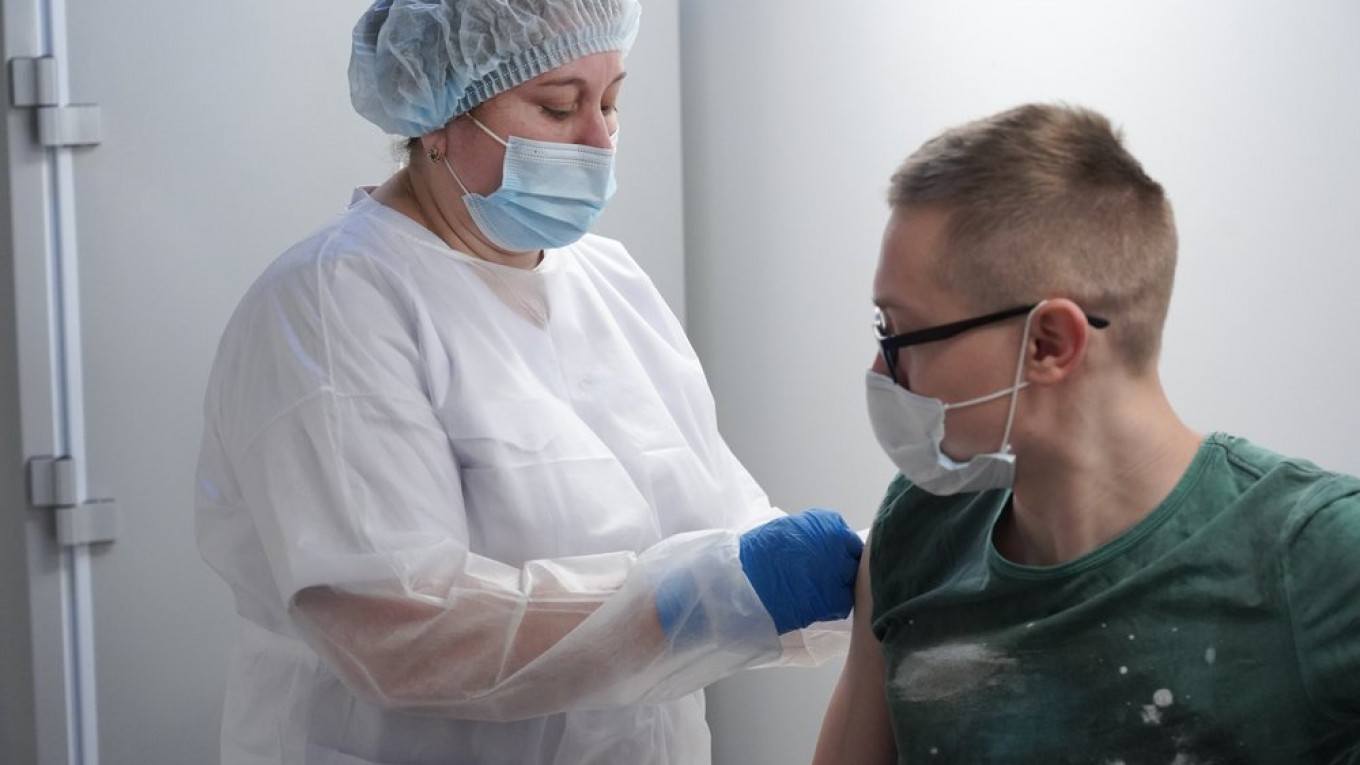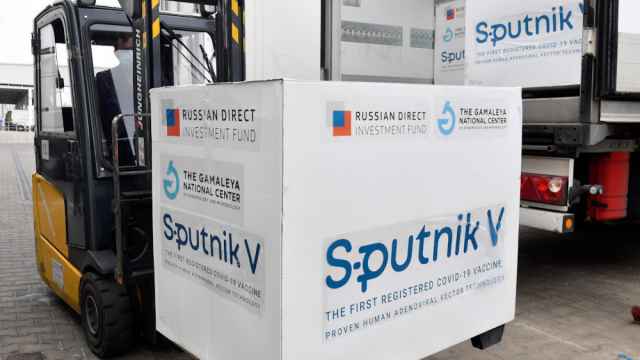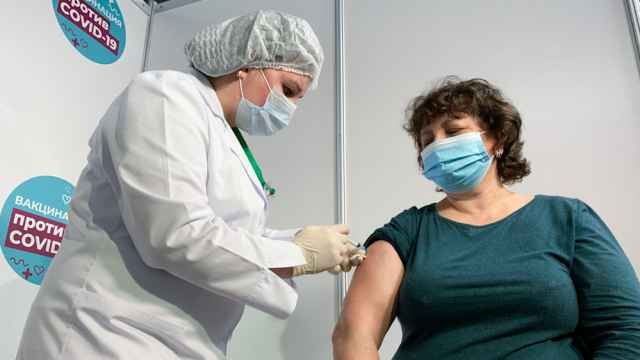Russia’s Sputnik V vaccine against Covid-19 has become world famous. Dozens of states are considering using it while such major countries as India, Brazil, Mexico, Argentina and Uzbekistan have pre-ordered many millions of doses.
Leading international medical journals have published studies on the vaccine’s efficacy that, after being administered to more than two million Russians, seems to be on a par with the initial results from Western vaccines.
Although scientists will repeatedly reevaluate Sputnik’s efficacy as data accumulates, the vaccine has already boosted Russians’ immunity at home as well as the country’s image abroad. This despite the Kremlin’s PR efforts that have been more harmful than helpful.
Building on Russia’s great scientific past
Although the official approval process for Sputnik V was opaque by modern world standards and the politicized PR surrounding it only caused further concerns, the Sputnik V vaccine is finally recognized as a solid vaccine.
This is partly because it fit well into the decades-old stereotype that Russia is especially adept at coming up with inexpensive quick fixes to problems vexing other world powers.
This image is based, first, on the more than 100 years of strong Russian scientific advances — achievements that even the last 50 years have not diminished. This luster surrounds not only Russian science as a whole: early 19th-century epidemiology in Russia was an important chapter in the history of world science.
Second, the main “trick” behind Soviet successes was the ability to concentrate powerful material and intellectual resources on a single goal. The country’s amazing breakthroughs in space, its ability to launch satellites, astronauts and lunar rovers — not to mention its athletic achievements — did not reflect in any way the general standard of living or other indicators of development. Today’s Sputnik V vaccine fits perfectly into the stereotype that says, “Russia cannot produce a high tide that lifts all boats, but it can muster sufficient resources to lift individual boats at will.”
Cheap and strong
Those are simply stereotypes, however. The main reason the Russian vaccine is getting so much positive press is that it works and is so inexpensive any country can afford it. The Gamaleya Research Institute and other institutions developed it, the Russian Direct Investment Fund handles distribution, and various government agencies also play a role in its success.
The one real problem here is that the Russian government is attempting to interpret this success according to its own narrative and to leverage it for geopolitical purposes. Fortunately, politics seems to have no part in the worldwide distribution of the vaccine, making it an ideal example of just how powerful soft power can be.
Harvard political scientist Joseph Nye coined the term “soft power” in the late 20th century. It refers to a country’s influence in the world based not on military or economic force, or on the threat of such force.
When the world’s best students aspire to attend Stanford or Princeton, this is U.S. soft power in action. When football players dream of playing for Real Madrid or Barcelona, this is the soft power of Spain.
When it is impossible to write a novel about love without living in Paris or Buenos Aires, this is the soft power of France and Argentina. When someone reads Sholokhov or Alexievich, studies paintings by Goncharova or Kandinsky, learns to dance like Pavlova or Baryshnikov or listens to recordings by Vishnevskaya or Rostropovich, this is the soft power of Russia.
In fact, Russia’s greatest soft power arguably lies in its outstanding history of science. The theorems of Kovalevskaya and Kolmogorov, the experiments of Semenov and Cherenkov, the experiments of Zilber and Yermolyeva, the models of Slutsky and Kantorovich, the books of Vygotsky and Bakhtin, and many other names and milestones stand out.
Like many others, Ilya Mechnikov, the 1908 Nobel Laureate, and his student Waldemar Mordechai Wolff Haffkine, the creator of the first vaccines against plague and cholera, contributed to Russia’s soft power even after emigrating. The world immediately hailed the appearance of Sputnik V because its creators stood on the reputational shoulders of these giants, then went on to make their own powerful contribution to Russia’s soft power.
Happiness is the best PR
Joseph Nye explained that soft power is not propaganda. Ten years ago, leaders created the Russian World Foundation to promote the Russian language and culture.
Today, no trace of it remains. Russia Today (RT) and other state-funded agencies burn through billions of taxpayer rubles every year but are seen as mere propaganda. In other words, they contribute nothing to Russia’s soft power. Compare this to the 2018 FIFA World Cup, the single most positive event in the past 50 years of Russia’s history.
It made an enormous contribution to Russian soft power precisely because every effort was made to host this amazing spectacle in an exemplary manner and not to use it as a propaganda prop. And the fact that the championship was so brilliantly organized and made millions of Russian citizens happy was the best PR of all.
The same applies to the Sputnik V vaccine. The more effort leaders invest in ensuring its quality, transparency in verification and efficiency in distribution, the greater will be its contribution to Russia’s soft power. And the less propaganda chatter we hear, the better.
A Russian version of this article was first published by our partner outlet VTimes
A Message from The Moscow Times:
Dear readers,
We are facing unprecedented challenges. Russia's Prosecutor General's Office has designated The Moscow Times as an "undesirable" organization, criminalizing our work and putting our staff at risk of prosecution. This follows our earlier unjust labeling as a "foreign agent."
These actions are direct attempts to silence independent journalism in Russia. The authorities claim our work "discredits the decisions of the Russian leadership." We see things differently: we strive to provide accurate, unbiased reporting on Russia.
We, the journalists of The Moscow Times, refuse to be silenced. But to continue our work, we need your help.
Your support, no matter how small, makes a world of difference. If you can, please support us monthly starting from just $2. It's quick to set up, and every contribution makes a significant impact.
By supporting The Moscow Times, you're defending open, independent journalism in the face of repression. Thank you for standing with us.
Remind me later.








